
Frontiers in Fungal Biology
metrics 2024
Transforming Our Understanding of Fungal Biology
Introduction
Frontiers in Fungal Biology is an innovative academic journal dedicated to advancing the field of mycology and its interdisciplinary connections, published by FRONTIERS MEDIA SA. With an E-ISSN of 2673-6128, this journal focuses on exploring diverse aspects of fungal biology, including ecological roles, evolutionary processes, and interactions with other organisms. Since its inception in 2020, Frontiers in Fungal Biology has garnered attention within the scientific community, earning a commendable Q2 ranking in both Ecology, Evolution, Behavior and Systematics, and Environmental Science categories in 2023, alongside respectable Q3 rankings in Infectious Diseases and Microbiology. The journal is committed to open access principles, making cutting-edge research freely available to a global audience, promoting knowledge sharing and collaboration. By providing a platform for rigorous research and impactful discussions, Frontiers in Fungal Biology aims to enhance the understanding of fungi and their significant roles in ecosystems, health, and biotechnology, appealing to researchers, professionals, and students alike.
Metrics 2024
 -
- 2.10
2.10 2.10
2.10 -
-Metrics History
Rank 2024
IF (Web Of Science)
JCI (Web Of Science)
Quartile History
Similar Journals
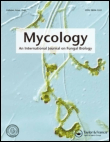
Mycology-An International Journal On Fungal Biology
Illuminating the Impact of Fungi on Health and EcosystemsMycology: An International Journal on Fungal Biology, published by Taylor & Francis Ltd, stands at the forefront of fungal research, facilitating the dissemination of knowledge across the diverse fields of infectious diseases, microbiology, and plant science. Established as an Open Access journal since 2010, it offers researchers free and immediate access to high-quality articles that advance our understanding of fungal biology and its applications. With a commendable ranking in Q2 for Infectious Diseases and Microbiology, and Q1 for Plant Science as of 2023, it positions itself as a vital resource for the global scientific community. The journal, conveniently located in the United Kingdom, is committed to publishing rigorous research that stimulates discussion and fosters collaboration among academics, practitioners, and students alike. By providing a platform for innovative studies and critical reviews, Mycology continues to play an essential role in unraveling the complexities of fungal organisms and their profound implications in health, agriculture, and ecosystem dynamics.

MYCOSES
Elevating understanding of mycoses through rigorous research.MYCOSES is a renowned academic journal published by Wiley, specializing in the fields of Dermatology, Infectious Diseases, and general Medicine, with a commendable focus on mycological research and its clinical implications. Established in 1957, this journal has significantly contributed to advancing our understanding of fungal diseases, offering a platform for high-quality research that ranks among the top in its categories—achieving Q1 status in Dermatology and Q1 in Medicine (miscellaneous), while maintaining a strong Q2 ranking in Infectious Diseases. With an impressive Scopus ranking of #5 in Medicine - Dermatology, MYCOSES occupies a pivotal position in the dissemination of critical findings and innovative practices within the scientific community. Although it is not an open-access journal, MYCOSES continues to attract a wide array of researchers, professionals, and students seeking to enhance their knowledge and keep abreast of the latest developments in mycology. Overall, MYCOSES not only serves as an essential resource for academia but also plays a vital role in shaping future research directions and clinical approaches to fungal infections.
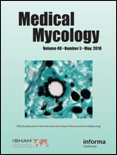
MEDICAL MYCOLOGY
Illuminating the Pathways of Fungal PathogenesisMEDICAL MYCOLOGY, published by Oxford University Press, is a premier journal dedicated to the study of fungal infections and their clinical implications. With an ISSN of 1369-3786 and an E-ISSN of 1460-2709, this journal has established itself as a vital resource in the fields of Infectious Diseases and Medicine, holding a respectable Q2 ranking for both categories and a Q1 ranking in the veterinary sector in 2023. Spanning a rich history from 1962 to 2024, MEDICAL MYCOLOGY serves as a platform for innovative research, case reports, and review articles that contribute to the understanding and management of mycological diseases. The journal's commitment to advancing knowledge is reflected in its Scopus rank of #120 out of 344 in Medicine - Infectious Diseases, positioning it within the 65th percentile. With open access options available, it aims to ensure that critical research is accessible to a global audience, enhancing collaboration and knowledge sharing among researchers, healthcare professionals, and students alike.
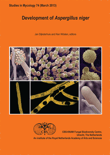
STUDIES IN MYCOLOGY
Illuminating the Ecological Impact of FungiSTUDIES IN MYCOLOGY is a premier journal dedicated to advancing research in the field of mycology, published by the renowned WESTERDIJK FUNGAL BIODIVERSITY INSTITUTE. With an impact factor that places it in the top quartile (Q1) of both Agricultural and Biological Sciences and Plant Science categories, it holds a prestigious position in the scientific community, ranking #1 out of 193 in its field as per Scopus metrics. Since its transition to Open Access in 2008, it has made significant strides in disseminating high-quality research widely, fostering a greater understanding of fungal biodiversity and its ecological impact. Covering a broad spectrum of topics related to mycology, the journal aims to provide researchers, professionals, and students with a platform for sharing innovative findings, stimulating academic discourse, and promoting collaborative efforts within this vital area of study. Hailing from the Netherlands, STUDIES IN MYCOLOGY serves as an invaluable resource for exploring the complexities of fungi, their interactions with various ecosystems, and their practical applications in agriculture and beyond.
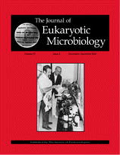
JOURNAL OF EUKARYOTIC MICROBIOLOGY
Illuminating the Diversity of Eukaryotic MicrobiologyJOURNAL OF EUKARYOTIC MICROBIOLOGY, published by WILEY, stands as a vital resource within the field of microbiology since its inception in 1993. With its ISSN 1066-5234 and E-ISSN 1550-7408, this journal provides a platform for the dissemination of high-quality research focused on the biology of eukaryotic microorganisms, including fungi, protozoa, and algae. The journal currently holds a Q3 ranking in the microbiology category, highlighting its significant contribution to scientific discourse in the field. With a multi-disciplinary approach, it encourages submissions that push the boundaries of understanding in areas such as microbiological ecology, phylogenetics, and molecular microbiology. While it does not offer open access, it remains widely accessible to researchers and academics through institutional subscriptions. As the journal progresses towards its converged years ending in 2024, it continues to be a beacon for students, professionals, and researchers alike who seek to explore and advance their understanding of eukaryotic microorganisms.

MYCOPATHOLOGIA
Driving innovation in mycology and plant science.MYCOPATHOLOGIA, published by Springer in the Netherlands, stands as a pivotal journal in the fields of mycology, plant science, and veterinary microbiology. With its extensive history dating back to 1938, this journal has consistently contributed to the understanding of fungal pathogens and their impact on both agriculture and animal health. It currently holds impressive rankings in Scopus, including Q1 status in Agronomy and Crop Science, and Q2 rankings in Applied Microbiology and Biotechnology, demonstrating its influence and rigor in the scientific community. Researchers and professionals benefit from its curated, high-quality studies which address critical areas such as plant-pathogen interactions and veterinary mycology. While not open access, MYCOPATHOLOGIA emphasizes comprehensive research output and serves as a vital resource for advancing knowledge and fostering innovation in its disciplines. The journal remains committed to disseminating valuable insights that drive forward both academic inquiry and practical applications in related fields, ensuring its relevance and importance in contemporary research.

SYDOWIA
Exploring the Intersections of Ecology and Plant ScienceSYDOWIA is a prestigious academic journal based in Austria, published by Verlag Ferdinand Berger Sohne Gesellschaft mbH, that has been a cornerstone of scientific publishing since its establishment in 1996. With an ISSN of 0082-0598, SYDOWIA focuses on critical research in the fields of Ecology, Evolution, Behavior and Systematics as well as Plant Science, earning a notable classification in Category Quartiles with Q3 in Ecology-related disciplines and Q2 in Plant Science for 2023. The journal’s strategic insights into agricultural and biological sciences have secured a place within the Scopus rankings, where it holds the position of #191 out of 516 in Plant Science and #278 out of 721 in Ecology categories—reflecting its growing influence with a percentile standing of 63rd and 61st, respectively. Although SYDOWIA is not an Open Access journal, it continues to thrive in delivering scholarly articles that promote advancement and innovation in ecological and botanical research. Researchers, professionals, and students alike can rely on SYDOWIA as a vital resource for disseminating knowledge and fostering exploration in these essential scientific domains.

MYCOSCIENCE
Empowering Researchers with Cutting-Edge Mycological InsightsMYCOSCIENCE, published by the Mycological Society of Japan, is a prominent peer-reviewed journal that serves as an essential resource in the fields of ecology, evolution, behavior, and systematics, highlighted by its Q2 ranking in the 2023 category quartiles. Established in 1994 and continuing through 2024, the journal focuses on mycological research, providing insights into the interconnected worlds of fungi and their ecological roles. With an ISSN of 1340-3540 and an E-ISSN of 1618-2545, MYCOSCIENCE aims to disseminate high-quality research that addresses current issues and trends within the discipline. Despite not being an open-access journal, it makes a significant contribution to advancing fungal biology and its applications in agriculture and environmental science, making it an invaluable asset for researchers, professionals, and students alike. Located in the vibrant academic environment of Tokyo, Japan, MYCOSCIENCE stands out for its dedication to fostering a deeper understanding of mycology and its implications for biodiversity and ecosystem health.

FUNGAL GENETICS AND BIOLOGY
Unraveling Fungal Complexities through GeneticsFungal Genetics and Biology is a leading peer-reviewed journal published by Academic Press Inc, Elsevier Science, dedicated to advancing the understanding of fungi through innovative genetic and biological research. Since its inception in 1996, this journal has served as a vital platform for the dissemination of critical findings in the fields of Genetics and Microbiology, maintaining a distinguished Q2 category ranking in both disciplines as of 2023. With an ISSN of 1087-1845 and an E-ISSN of 1096-0937, the journal emphasizes the intersection of genetics and molecular biology to explore fundamental questions related to fungal biology that are of paramount importance to various applications in biotechnology, medicine, and environmental science. Researchers, professionals, and students alike will find this journal invaluable as it not only covers current trends and breakthroughs but also encourages collaborative efforts across the scientific community. Fungal Genetics and Biology continues to shape the future of fungal research well into 2024 and beyond, offering rich insights and open access options for a global audience.
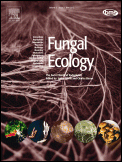
Fungal Ecology
Illuminating the Role of Fungi in EcosystemsFungal Ecology, published by Elsevier Science Ltd, is a leading international journal dedicated to the exploration and advancement of our understanding of fungal biology and its ecological significance. With an impressive impact factor and recognized in the second quartile (Q2) across various categories such as Ecological Modeling, Ecology, Ecology, Evolution, Behavior and Systematics, and Plant Science, this journal offers a critical platform for researchers and professionals to disseminate and discuss innovations in fungal ecology. Since its inception in 2008, the journal has built a solid reputation, particularly highlighted by its impressive Scopus rankings, including a top percentile status in ecological fields. Researchers are encouraged to submit their findings that contribute to the understanding of the ecological roles of fungi, their interactions within ecosystems, and their applications in environmental science. Although the journal does not offer open access, it remains a vital resource for academics and practitioners aiming to stay ahead in the rapidly evolving fields of fungal research and ecology. Located in the vibrant heart of the Netherlands, the journal continues to foster scholarly engagement and collaboration among scientists globally.